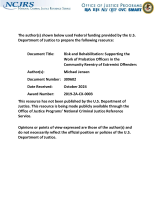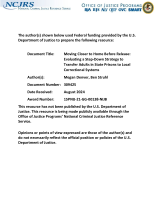Physical and mental health upon reentry: The importance of social contact in prison for wellbeing during reintegration
Journal
Public Health
Date Published
January 2026
Agencies
NIJ-Sponsored
Publication Type
Research (Applied/Empirical)





